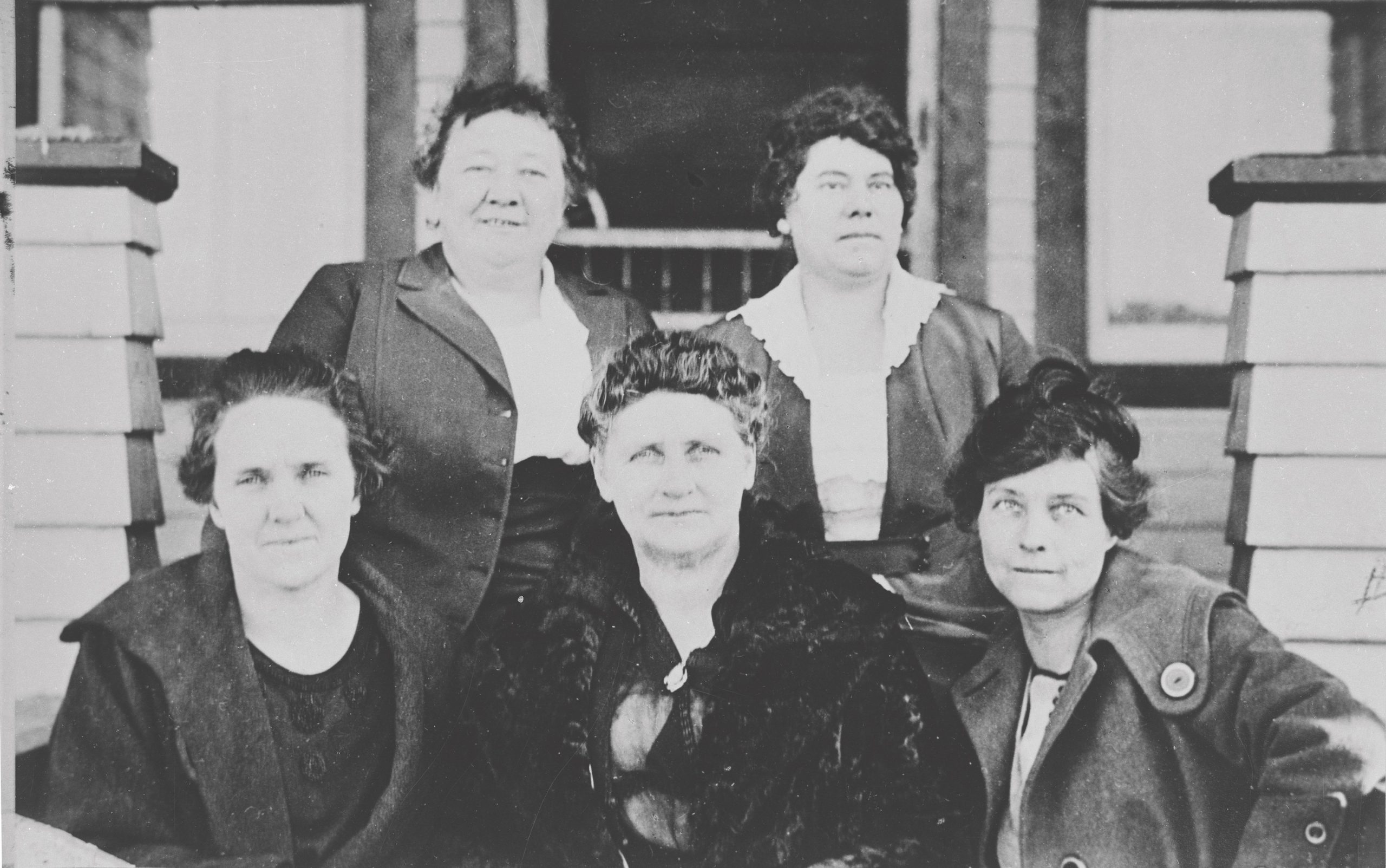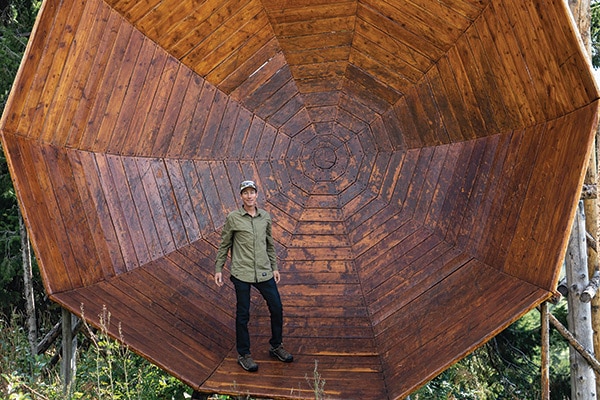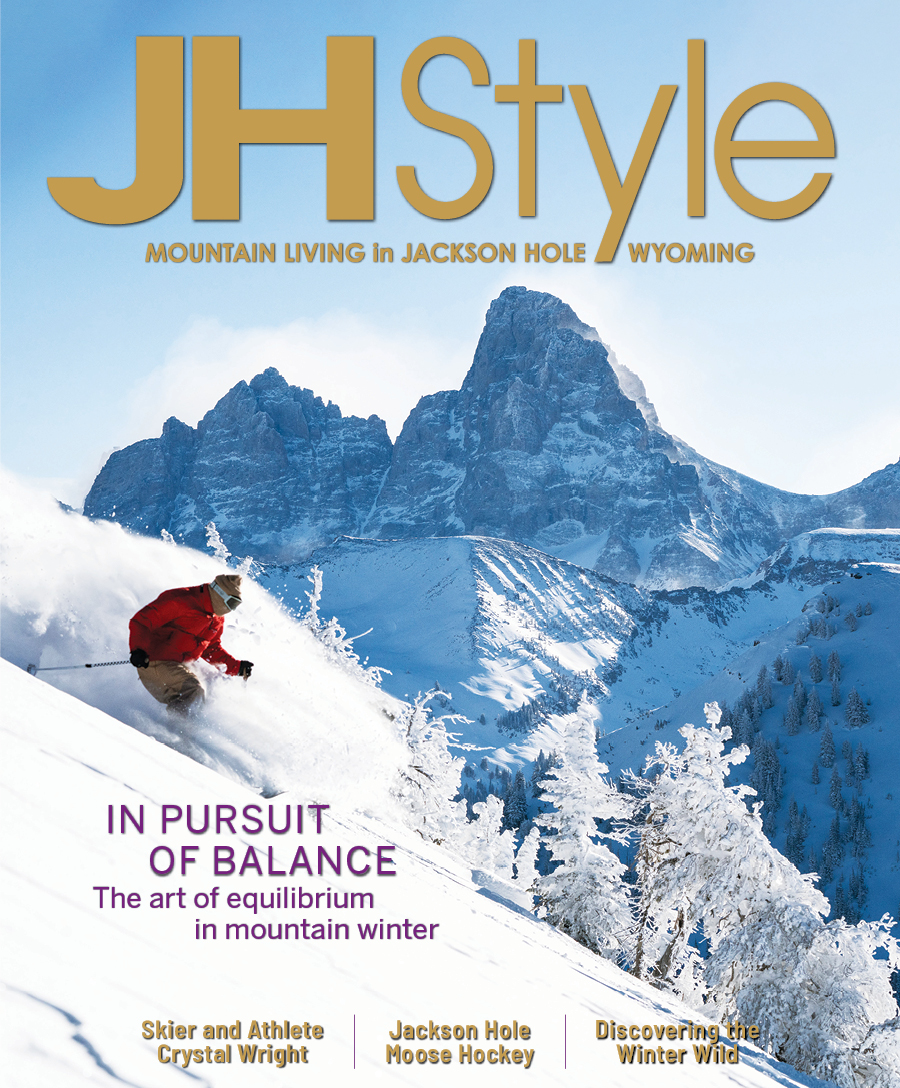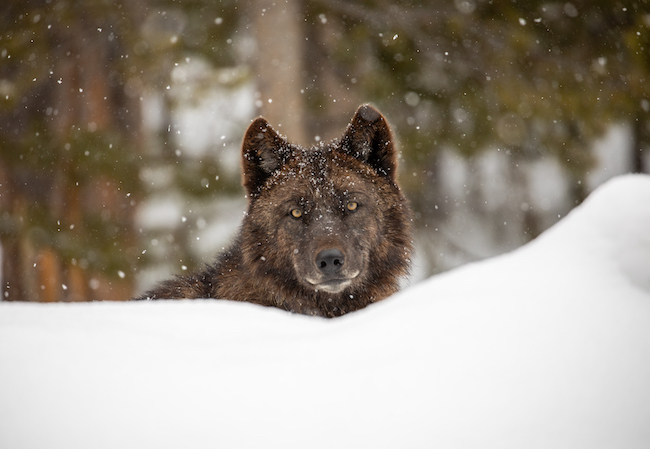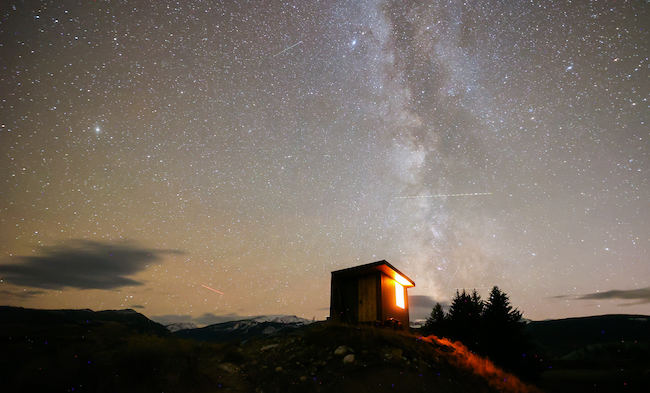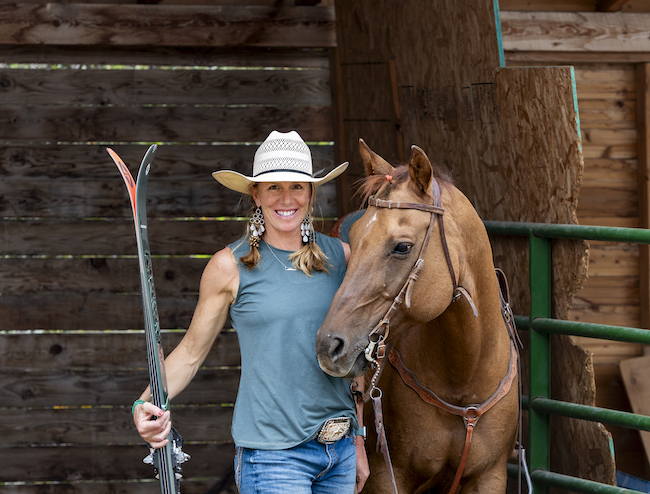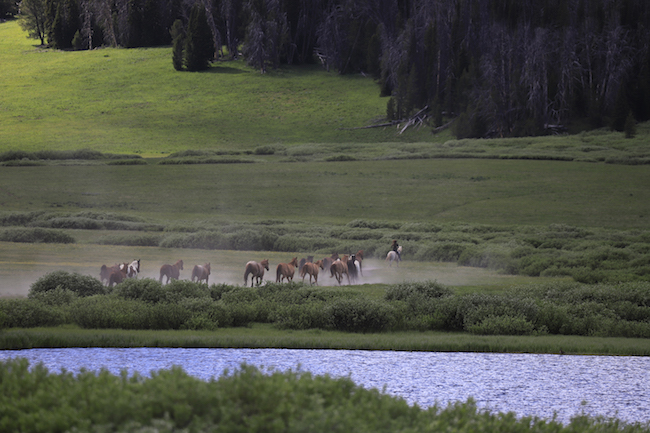Protecting Winter Wildlife
18 May 2020
Phillips' Guiding Company Focuses on Conservation
Winter 2019/2020
Written By: Kristen Pope | Images: Courtesy Josh Metten Photography and EcoTour Adventures
Winter is a challenging time of year for wildlife. Deep snow makes it difficult for animals to find food or move quickly to escape threats. Just traveling through the snow—especially in bitterly cold temperatures—expends a tremendous amount of energy. Taylor Phillips, owner of Jackson Hole Ecotour Adventures, knows how important it is to protect wildlife in the winter, and his guide service works to keep animals safe.
Phillips’ company has supported Jackson Hole Conservation Alliance’s “Don’t Poach the Powder” campaign for the past decade. The campaign encourages people to respect winter wildlife closures that provide wildlife with a refuge during the most stressful time of year by keeping humans and pets out of certain areas.
“It’s cold, snowy, windy, and it’s important that these animals have locations within the valley and the mountains where they don’t get pushed, where they’re not being disturbed by humans,” Phillips says. “There are chunks of this landscape that are set aside for wintering wildlife. That affords these species a safe haven.”
Harsh winter conditions also bring animals down to lower elevations where they are easier to observe from a safe and respectful distance. Phillips’ company offers programs in Grand Teton National Park and the National Elk Refuge to observe species like elk, moose, bighorn sheep, mule deer, coyotes, wolves, grouse, and trumpeter swans. Tours can be either vehicle-based or active explorations on cross-country skis or snowshoes, but they always give the animals plenty of space and never encroach on closed areas.
Phillips encourages people to take steps to protect wildlife every time they go outside, including respecting winter wildlife closures, staying on designated routes, and following all regulations.



“It’s super important to respect the wilderness areas, keep mechanized machinery and vehicles, including mountain bikes, out of those areas and to give wildlife a chance they need,” Phillips says. “If we are affecting the animal’s behavior, if our presence is changing their behavior, we’re too close, and it would be prudent to back off a bit. And in areas where wildlife are present, keep dogs on leashes so we’re not disturbing the wildlife with our pets.”
Phillips also points out his concerns about climate change and the impact it could have on the region and its iconic wildlife.
“Climate change has the possibility to have grave impacts on wildlife migration, disease, and species distribution, among other challenges,” he says.
He stresses the importance of protecting the ecosystem and wildlife, especially since it is so unique.
“This is one of the last strongholds of wildlife in the continental U.S.,” he says. “Every mammal that lived here in this ecosystem 200 years ago still lives here today, so this is a special place because of that, and it’s important that we keep this ecosystem and Jackson Hole as pristine as we can to protect that diversity.”

